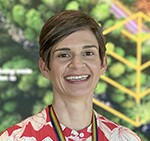Unconventional reservoirs have always posed a myriad of engineering conundrums to solve to develop the vast resources contained in these challenging formations. Since the early 2000s, when macroeconomics and demand set the stage for “the great shale race,” energy companies have looked to technology to unlock these resources. As the demand for energy continues to increase, so does the sociopolitical demand that these resources be produced in a sustainable way. This reflective thought has defined this month’s selection of technical papers, each speaking to a different facet of this feature’s theme: unconventional reservoir development for a sustainable energy transition.
Starting with what we’ve learned with over 2 decades of unconventional exploration and development, there are many lessons the industry can apply across a wide variety of reservoir types and locations. The first paper highlighted this month speaks to the power of learning from others. From North America to the Middle East nations and on to the Asia Pacific region, companies have been able to trial quickly and pivot to new technologies by sharing learning from basin to basin. The Vaca Muerta in Argentina has benefited from associative learning in its journey from emerging basin to heartland resource for South America.
Big data is leading the way to innovation. By definition, unconventional reservoirs are burdened with poor permeability and, hence, require multiple wells or longer wells with multiple contact points to develop economic rates. This large data set means a large amount of information in a complex and heavily dependent matrix of wells and reservoir parameters. Digital technology has matured at an ever-increasing pace, enabling big data mining and harnessing understanding of these complex unconventional reservoirs. The second paper showcased this month shows an application of digital learning tools developed to place wells more efficiently in an intricate fluvial tight gas reservoir of mainland China.
Finally, the third paper selected for this month’s feature supports the idea of the fundamental center of unconventional technology being a breeding ground for innovation. Sustainability in the future of resource development presents the call for more and cleaner energy. The pioneering spirit of unconventionals is brimming with answers to that call through continued advancement of technology in novel ways.
This Month’s Technical Papers
Analysis Reveals Depth of Vaca Muerta’s Potential
Machine Learning Approach Empowers Well Placement in Tight Gas Field
Study Makes Value Proposition for Carbon-Neutral Fuel From Light Tight Oil
Recommended Additional Reading
SPE 207394 First Successful Pilot Testing of Unconventional Reservoir in North Kuwait From Scratch to Productivity by Zamzam Mohammed Ahmed, Kuwait Oil Company, et al.
SPE 211129 A Machine-Learning-Based Accelerated Approach To Infer the Breakdown Pressure of Tight Rocks by Zeeshan Tariq, King Abdullah University of Science and Technology, et al.
SPE 207906 Future-Proofing the Development of Unconventional Resources in UAEby Viannet Okouma Mangha, ADVOC, et al.
Larissa Walker, SPE, graduated with honors from the University of Waterloo in 2005 with a Bachelor of Applied Science degree in geological engineering and began a career with Shell as a petrophysicist in Calgary. Her more than 18 years of energy industry experience covers a wide spectrum of unconventional resources including deep, sour gas carbonates; tight sand and shale plays of Western Canada; the Appalachian Basin shales in America; and coal seam gas in Eastern Australia. These complex assets provide the foundation of Walker’s deep technical and project management insight into the key elements that deliver value throughout each stage of a project’s life cycle. In her current role as technical lead, she is responsible for the front-end development for Shell in Queensland’s Bowen Basin Permian tight gas sand (TGS) assets. The success case delivery of the Bowen TGS Capital Project has the potential to sustain the existing Queensland Curtis LNG project while providing gas and liquids into the East Coast domestic market. Walker is a member of the JPT Editorial Review Board and can be reached at larissa.walker@shell.com.

